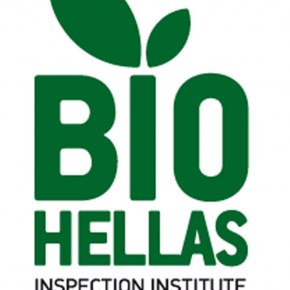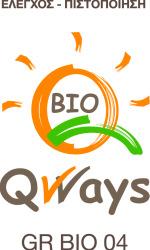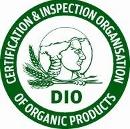Starting to work against the wrong imagination that “bio labels” are “all a lie, a fake cooperation company, not trust able etc”, the members of the W(e) DID workshop started to make a research in Lefkada´s supermarkets about biological products. We tried to find out, which ones are available and what signs are printed on them. After that a long period of online research started to get the best information about the big variety of the bio jungle. We recognized a variety of Eco-labels on products, that not always promise what they say. But this only happens on the first sight. Its a wide spread wrong thought, that everything that is packaged in a green bottle, printed with a tree, cow or leave on it, is sustainable, or that is provided with the letters “B-I-O” means to really contain a 100% organic product. As its exactly defined what is allowed to be called “controlled organic farming”, it´s wrong to claim that all the other marketing phrases like “100%nature, very much nature inside, green” etc. say anything about actual organic farming. Attached here are the “eco-labels” that are used in Greece with a short description of their content, certification or meaning.  EU Organic label:
EU Organic label:
- This certification is used in the European Union countries and guarantee a high controlled standard of organic food.
- The production respects nature.
- Produced in a sustainable way.
- Controlled once per year by control bodies or control authorities
- Farm animals are freely grazing in the open-air and they are treated according to enhanced animal welfare conditions.
- NO Genetically modified organisms
- For food, there are strict limitations to the use of chemical pesticides and fertilisers, antibiotics
- Organic agriculture strictly limits the use of food additives and processing aids and other inputs.
- Most of the inputs for farm production come from the farm itself using local resources and local knowledge.
- Read and research: http://ec.europa.eu/agriculture/organic/downloads/logo/index_en.htm
- Bio Hellas is the Bio label of Greece that guarantees to fulfill the standards of the EU- organic label.
- CONTROL and CERTIFICATION (whole chain of foodstuff, from animal farms to food retailers and export industries)
- Approved by the Greek Ministry of Rural Development and Food as Inspection and Certification body for organic products (European Union code GR-BIO-03)
- Accredited by the National Accreditation System (ESYD) according to ELOT EN 45011/ISO 65 Standard as an Inspection Body able to certify organic products.
- Official certification body in Bulgaria with the code BG-BIO-10 and an approved certification body in Moldova.
- BIOHELLAS is a member of IFOAM and HellasCert.
- According to the Organic Certification Directory 2008 BIOHELLAS is among the top ten of Inspection and Certification Bodies worldwide.
- The BIOHellas Institute provides certification services according to: – EU Regulation 834/2007
- Read and Research: http://www.bio-hellas.gr/en/Home/tabid/36/Default.aspx
- Quality Ways S.A. is a Greek Inspection and Certification Body for Products and Systems in the Agriculture and Environmental sector.
- QWays is an authorized Certification Body for Organic Products from the Ministry of Rural Development and Food with authorization code GR- BIO – 04
- QWays is an active member of IFOAM (IFOAM is the International Federation of Organic Agriculture Movements, a strong network of 750 organizations from 108 countries promoting organic farming worldwide–)
- Read and Research: http://www.qways.gr/
- Dio is the oldest greek eco label and is described for its organic and sustainable standards.
- Read and Research (in Greek): http://www.dionet.gr/
Of course there are also other certifications, which can be found in the same shelves in supermarkets where also the biological products are located, but still they don´t have the same meaning. Remember not everything that is green contains something green. The following labels are also described:  AGROCERT
AGROCERT
- Certification of agricultural production systems
- Certification of agricultural products
- Evaluation, approval and supervision of Control and Certification private bodies, accredited by the National Accreditation System.
- Preparation and publication of optional sectoral standards and development of specifications towards quality assurance of agricultural products.
PDO
- Protected Designation of Origin (PDO)
- Part of the Protected Geographical Status system in the European Union (EU).
- Designed to protect the integrity of European food and drink by carefully legislating the labeling of certain European products.
- Items produced in a specific area in a particular way may bear that label in the European market.
Apart from those descriptions, there are many other ways to prove sustainability. The most important thing is, to be well informed. To trust in those labels that are strictly controlled, will not only improve your footprint, but the sustainable consumption will improve your lifestyle. Its a personal decision if you want to avoid food that is treated with pesticides, other chemicals, gen manipulation and other unhealthy stuff. It´s a matter of your ethics if you care about the treatment of farmers, of the nature in those areas as well as biodiversity and co. Everybody has to ask himself/herself if its worth to pay sometimes more for a much higher quality or to reduce personal demands. Quality of food, means quality of life and we all know and have to be aware of the dramatic destruction that we do towards nature. Nature will pay back for that. And this will not cost dobble price, this will cost mankind. Written by Elisabeth Daniela Weissitsch.



